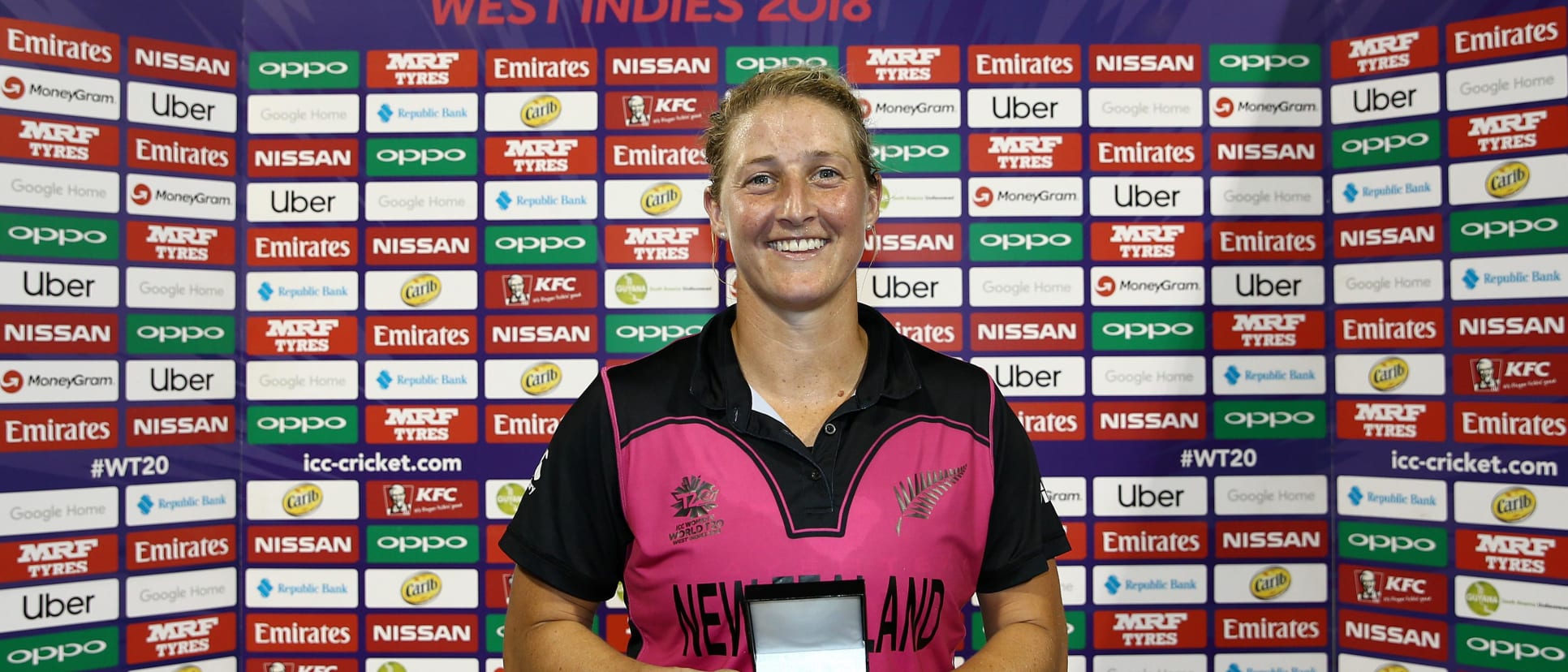Splitting Bates and Devine ‘didn't quite work out’

It was a disappointing run for one of the best sides in the world. New Zealand started with defeats to India and Australia, effectively saying goodbye to their prospects.
Sophie Devine signs off from the #WT20 in style! Her fifty off just 21 balls takes @WHITE_FERNS to a quick eight-wicket win over Ireland. #NZvIRE Report + highlights
— ICC (@ICC) November 17, 2018
➡ https://t.co/YEZxLhihqD#WatchThis pic.twitter.com/4zXAY1IQ1m
One of the bits about their plan of action that attracted raised eyebrows was putting Anna Peterson in as opener alongside Suzie Bates, and getting Sophie Devine to go one-down. Bates and Devine are one of the most destructive pairs in world cricket, and breaking them up might have been a mistake.
Once they got back together, in the game against Pakistan, Devine scored 32 and Bates 35, and they won. Bates had been in great form all along anyway – 67, 48, 35 and 11 – and Devine scored a 22-ball 51 in the last game, against Ireland, to show that she might have made a difference at the top of the batting order.
“We thought we could potentially lengthen our batting order a little bit. And Anna Peterson has been batting really well at domestic cricket, opening the batting. She's an aggressive player. I think that sort of choice was let's give her a crack, free licence, go out there, see if she can score quickly,” said Maddy Green, the New Zealand batter, of the reason for separating Bates and Devine.
“Unfortunately that didn't come off for her in those first few games. So I think going back to Sophie and Suzie, it's an opportunity for those two to bat as long as they can. I don't necessarily think it was the wrong decision to split those two up against Australia and India. Just didn't quite work out on the day.”
New Zealand's @SuzieWBates today became the first player to reach the milestone of 3,000 T20I runs! Congratulations! 👏👏👏
— ICC (@ICC) November 18, 2018
WATCH ▶️ https://t.co/zTry1FU5FO#WT20 #WatchThis pic.twitter.com/wtLrKoJNBi
Peterson scored 14 in 12 against India and a two-ball duck against Australia. In hindsight, did that upset the team’s rhythm?
“I don't think so. Actually, when we played in England during the middle of the year, we sort of had Sophie and Suzie split up. I know that was one-day cricket, but it was something we talked about,” said Green.
“If we can keep them batting for a long time throughout the course of the game, that's going to help us win games.”
It’s one of the things Green said the team will probably look at after going back home. The other thing is losing key moments in crucial games.
“For us, it's just about winning critical moments in each game,” said Green. “I think both against India and Australia, we got ourselves into positions to actually win the game. It's just been winning those critical moments, and I think that's what Australia and India did against us in those first two games.
Disappointing, but we know we're a good side. And it's just refining … being able to win those critical moments, I think we got ourselves into a really good position against Australia to win that game. And losing wickets in clumps doesn't help us.”
For Ireland, it was the fourth defeat in four games, which have thwarted their plans of qualifying directly for the next edition of the tournament. Despite that, the experience will help them.
“I think we take so much from the World Cup, to be honest. Any time we do play internationals, I think there's always learnings to be had. And I think we have learned a lot,” said Kim Garth.
“I think some of the younger girls have actually stepped up quite well. And obviously ,we've got four retirees, four people retiring this evening. So the younger girls are going to have to step up. I think they have done that at times during the World T20, which is obviously a positive for us.”